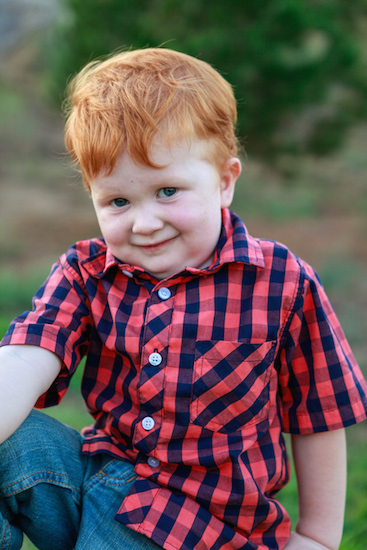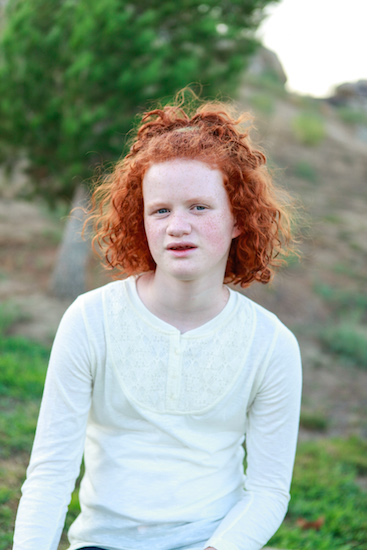I spent over a year fighting the voices in my head that told me my daughter, Julianna, had autism. I was okay with other diagnoses, like developmental delays, speech delays, even sensory processing disorder. The school district, who had been doing the bulk of the evaluations, went along with me, because I think they sensed my trepidation concerning the word autism. Back then, it felt so final, so limiting. So I felt better believing that she could have other things, but not autism.
When she approached her 5th birthday, I became concerned. Her behaviors were getting out of control. I was losing my ability to care for her properly. Our family seemed like it was hanging by a thread. And the local regional center denied services because she didn’t have an official diagnosis of autism on her records, only “autistic tendencies.” So when she started her second year of preschool, I told the psychologist to give it to me straight. If he thought she had autism, I was ready to hear it. And more than that, I desperately needed more help for her.
I remember sitting at the table in the conference room of the preschool, surrounded by her wonderful teachers, the school director, the therapists and the psychologist. I already knew why we were meeting: We were finally going to put that word “autism” on her IEP, on her official reports. It would be her primary diagnosis. But I didn’t realize how much it would hurt me, even being ready for it. The psychologist began reading his report, and when he mentioned autism as her new diagnosis, it stung me. It felt like I had just been pushed hard, in the chest, like the breath had been knocked out of me. I fought to hold back the tears, but it was pointless. I sat there, the parent, the representative of Julianna at this meeting, and just cried.
I’ve cried at so many IEP meetings, and I’ve always wondered how it makes the others at the table feel. Are they uncomfortable? Is it awkward? Do they really understand why this is so hard to hear? To sit around a table and hear all these things said about your child — global delays, first percentile, mild mental retardation, gross motor delay, fine motor delay, speech delay, the list goes on. And now autism. But that word was key to getting her the help she needed and the peace our family was seeking.

I’ve come a long way since then. That was seven years ago, and just this week, I began the same process with my youngest child, Nathan, who is almost 3. He was born with a cleft palate and a duplication of chromosome 22, which puts him at risk for all kinds of delays and disorders. He’s been watched closely by a team of specialists since his birth. He’s had the surgery to repair the palate. He’s doing speech therapy and progressing well. But because of our family history, I had to know — was autism going to be added to his list?
He was evaluated by our regional center, the same one that denied services for Julianna year after year. I sat in the waiting room with other parents seeking answers while Nathan played with the Tonka trucks. A nice woman called his name from the doorway, and we walked back to her office. After a series of questions and tests, she said he did not have autism. I was expecting this and didn’t feel relieved. All I could think about was my daughter.
When I got home, I posted the news about Nathan on my Facebook page, and many people liked the post and commented things like, “What good news!” And they’re right, it is good news. Good news for Nathan. Good news for our family.
But I couldn’t stop thinking about Julianna. She has autism. She’s still dealing with anxiety, motor and vocal tics that she can’t control, sensory issues related to food and clothing and smells and sounds, problems communicating and making eye contact, a strict schedule of therapy, a fear of swimming and water. And that’s OK. She’s also good news to our family. And if you asked her, she’d say there was nothing wrong with her. Sometimes I ask her, “Do you like being Julianna?” She always answers with a little laugh, “Yes, I like being Julianna.”
Yes, I am happy Nathan doesn’t have autism. But even if he had been given the diagnosis, I would have felt the sting, the loss of breath, just like I did seven years ago. Hearing the word is hard — but the healing does come, slowly. I still ache for Julianna and her challenges, but she is also good news in our family. She is teaching us, and others all around her, about kindness, tolerance, acceptance and love. And we are blessed. I don’t fear autism anymore. I am embracing it. It’s not final or limiting to me anymore.
It makes her who she is, and our family is better because of it.
Follow this journey on The Special Reds.

